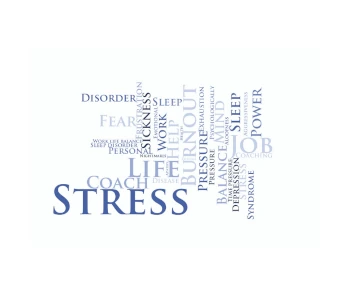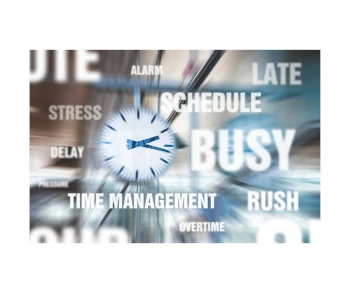Stress
 A state of mental or emotional strain or tension resulting from adverse or demanding circumstances.
A state of mental or emotional strain or tension resulting from adverse or demanding circumstances. The harmful, unpredictable and restrictive events of the last couple of years have been really stressful for many people. Stress is unavoidable for most of us… especially in these times of rapidly rising costs of living. The impact of stress, ill health and injury can be harmful to the body, putting it into a state of imbalance and blocking fundamental nerve pathways which prevent it from functioning efficiently. Too much stress can be detrimental to our long- term health, which is why it’s so important to keep it in check and be aware of the signs. It’s easy to think we’re coping but sometimes the signs we’re not coping are subtle. When the body is in a constant state of stress, cortisol and adrenaline can interrupt the delicate hormonal harmony within. Many physical symptoms can occur due to this constant release of chemicals.
Stress Is Common
 Stress is a common occurrence in many people’s lives. It can present in lots of different ways…in psychological, behavioural, physical, or emotional manifestations. The way we react to stress is unique to each of us as we’re all unique individuals. It’s important for us to be able to recognise the signs or triggers of stress so we can work out the best way of managing it. Stress can become chronic when we’re experiencing persistent stressful situations with little or no let up. Unhealthy coping strategies can lead to an increased risk of developing problems with our physical and emotional health. Our brains function on different levels, we have a rational brain which makes logical decisions and our emotional brain, which processes our feelings and fears. These two processes can often work against each other.
Stress is a common occurrence in many people’s lives. It can present in lots of different ways…in psychological, behavioural, physical, or emotional manifestations. The way we react to stress is unique to each of us as we’re all unique individuals. It’s important for us to be able to recognise the signs or triggers of stress so we can work out the best way of managing it. Stress can become chronic when we’re experiencing persistent stressful situations with little or no let up. Unhealthy coping strategies can lead to an increased risk of developing problems with our physical and emotional health. Our brains function on different levels, we have a rational brain which makes logical decisions and our emotional brain, which processes our feelings and fears. These two processes can often work against each other. Internal and External Demands
 There are internal and external demands that can affect how we cope with stress. It’s essential to understand the internal demands to be able to cope with the external demands. There are many strategies you can use to minimise your response to stress. Identifying your triggers, which could be regular issues that crop up, one-off events, or ongoing stressful situations. By establishing triggers can you anticipate problems and think of ways to solve them. Even if you can’t avoid these situations, being prepared can help you cope better with what life entails.
There are internal and external demands that can affect how we cope with stress. It’s essential to understand the internal demands to be able to cope with the external demands. There are many strategies you can use to minimise your response to stress. Identifying your triggers, which could be regular issues that crop up, one-off events, or ongoing stressful situations. By establishing triggers can you anticipate problems and think of ways to solve them. Even if you can’t avoid these situations, being prepared can help you cope better with what life entails.
Reflexology can help you relax, encourage better sleep, lift your mood, relieve tension, and improve your sense of well-being. It can help release blocked energy channels, which can boost circulation which eliminates toxins and it can encourage essential nutrients to reach poorly functioning areas of the body, ultimately improving the efficiency of the body’s systems to aid healing and restore balance.
Reduce Stress
 Effective time management can also reduce stress. By being more organised and making some adjustments to the way time is managed could help you feel more in control of any tasks you’re facing and help you be in a better position to handle pressure. Diverting your thinking away from the negative and into the positive gets your thoughts in the right place so you can see the good that’s already in your life. What helps relieve your stress…?? I try to manage the stressful situations in my life by maintaining a balanced life. I do this by enjoying a (mostly) healthy lifestyle, being active, yoga, swimming and squash, spending time with friends, family and my dog. I love a spa break and exploring new places. I have lots of lists which helps me stay organised, although it doesn’t always work out that way…!! I like to meditate, and I try to get a good amount of sleep. I like to be busy which can sometimes make my life too hectic, therefore it’s important for me to regularly reflect and focus on what I must achieve and by when.
Effective time management can also reduce stress. By being more organised and making some adjustments to the way time is managed could help you feel more in control of any tasks you’re facing and help you be in a better position to handle pressure. Diverting your thinking away from the negative and into the positive gets your thoughts in the right place so you can see the good that’s already in your life. What helps relieve your stress…?? I try to manage the stressful situations in my life by maintaining a balanced life. I do this by enjoying a (mostly) healthy lifestyle, being active, yoga, swimming and squash, spending time with friends, family and my dog. I love a spa break and exploring new places. I have lots of lists which helps me stay organised, although it doesn’t always work out that way…!! I like to meditate, and I try to get a good amount of sleep. I like to be busy which can sometimes make my life too hectic, therefore it’s important for me to regularly reflect and focus on what I must achieve and by when.
Thank you for reading – Stress. I hope you enjoyed it, if you would like more please follow me on Facebook and Instagram. Or if you would like to get in touch please Contact Me.
See you soon,
Sally
